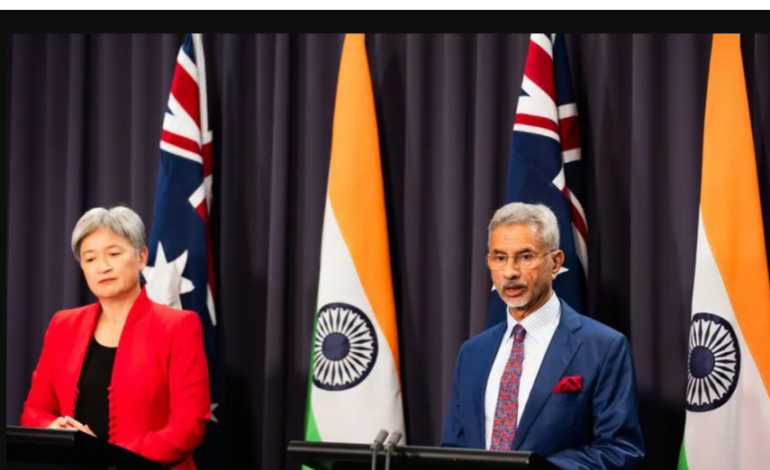
Australia Today responds after Canada blocks EAM Jaishankar’s press meet
In response to the Canadian government’s decision to block the social media platforms of Australian news outlet Australia Today, the organization issued a statement on Friday, reaffirming its commitment to delivering critical news and diverse perspectives to the public.
The controversy began earlier this week following a press conference between Indian External Affairs Minister (EAM) S. Jaishankar and Australian Foreign Minister Penny Wong. During the conference, EAM Jaishankar made pointed remarks about the ongoing India-Canada standoff, accusing Canada of providing political space to Khalistani extremists.
The comments quickly became a flashpoint, with India reacting sharply to Canada’s actions and questioning its commitment to free speech. In response, the Canadian government blocked Australia Today’s social media presence, citing the nature of the broadcast.
In its statement, Australia Today expressed gratitude for the support it had received from around the world, particularly from those advocating for press freedom.
“Despite the challenges posed by the Canadian government’s actions, we remain steadfast in our mission to bring important stories and voices to the public, undeterred by these obstacles,” the news outlet said in a post.
The statement went on to acknowledge the impact of the Canadian move on its team and supporters, emphasizing the importance of protecting journalistic independence in an era of increasing media censorship.
“The recent actions by the Canadian government have been difficult for our team and for those who value free and open journalism,” Australia Today said, adding, “However, the overwhelming support we have received is a powerful reminder of the importance of a #freepress.”
Managing Editor Jitarth Jai Bharadwaj addressed the incident, praising the solidarity shown by the outlet’s global audience.
“Despite these restrictions, your unwavering support has been a beacon of strength for us,” Bharadwaj said. “Whether it was sharing our coverage on other platforms, voicing concerns about press freedom, or simply offering encouragement, every action made a difference,” he said.
Bharadwaj also expressed deep appreciation for the continued advocacy for press freedom and transparency, stressing that the outlet would not be deterred by external pressures.
“We deeply appreciate the solidarity shown by our community and their commitment to upholding the freedom of information and the right of audiences to access diverse perspectives,” he added. “We will continue to advocate for an open and inclusive media landscape,” Bharadwaj concluded, reaffirming Australia Today’s commitment to the principles of transparency, accuracy, and journalistic integrity, no matter the obstacles they face.
The incident highlights growing tensions between Canada and India, particularly over the issue of Khalistani separatism, which has been a longstanding point of contention. However, it also underscores broader concerns about freedom of the press, with critics arguing that the Canadian move was an attempt to suppress an important international dialogue.
Recently, Canada and India each expelled their top diplomats due to the fallout from Canadian Prime Minister Justin Trudeau’s allegations that there were possible links between Indian intelligence and the killing of a Canadian citizen, Hardeep Singh Nijjar, in Canada. India had categorized Nijjar as a Khalistani terrorist (he had faced no criminal charges in Canada but was put on a no-fly list and his bank accounts were frozen). The row appears to be escalating Canadian Hindu-Sikh tensions within the nation.